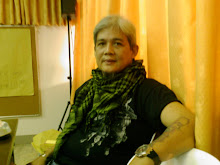Education nowadays as well as the process within it is measured more in terms of extensity than of intensity. Hence, the more relevant burden of academic scholarship in the present era is to locate the concrete vantage point where extensity and intensity may fully be coordinated to effect the realization of the truly educated individual. The lopsided thrust of education and its required features focuses more on the superficial in the matter, manner and method that it possesses. This is in the area of extensity and the problem with the unilateral emphasis on it is the inadvertent isolation of intensity which capitalizes on depth and quality. At the end of the road, we find extensively "educated" individuals who are more particularly interested in the degress attached to their names than in the essential depth of what they possess in the intellect.
Thinking aloud, it could be surmised reasonably that despite the presence of an array of multi-degreed academics, the general landscape of national life is still seen to be retrogressive and less promising. More realistically, the academe and real life do not match up and fit well together for what is taught in the academe are matters so artificial, real life does not need them and real life is so concrete the academe, replete with abstract notions peddled by "schizophrenic" professors, is just a superfluous nuisance.
The intensity of education lies in the fact thet it should be a realistic reflection--a committed theorizing--on what is actually experienced in life. It should be a deeper exploration into the dynamics and mechanics of actual life-events interconnected among themselves and constitutive of a system that prevails at a certain moment of ongoing history. Such education can only lead to a better understanding not of the theory that expresses the understanding but of the practical life given interpretation by the theory. In this condition and situation, real authorities are a common sight and their contribution is not to the growing statistics of half-cooked doctoral degree holders but to the economic vibrancy, poltical stability, social empowerment and cultural intensification.
To be more specific at this point of the discussion, the dialectical notion of progress that characterizes authentic education as an intense reflection of actual practices in social life should permeate every process operationalized in it in the forms or instruction, reseach, and extension.In other words, dialectics operates not only in terms of extensity but in terms of intensity as components of the entire system complement each other to achieve a higher level of development.
(c) Ruel F. Pepa
Friday, December 4, 2009
Subscribe to:
Post Comments (Atom)

No comments:
Post a Comment